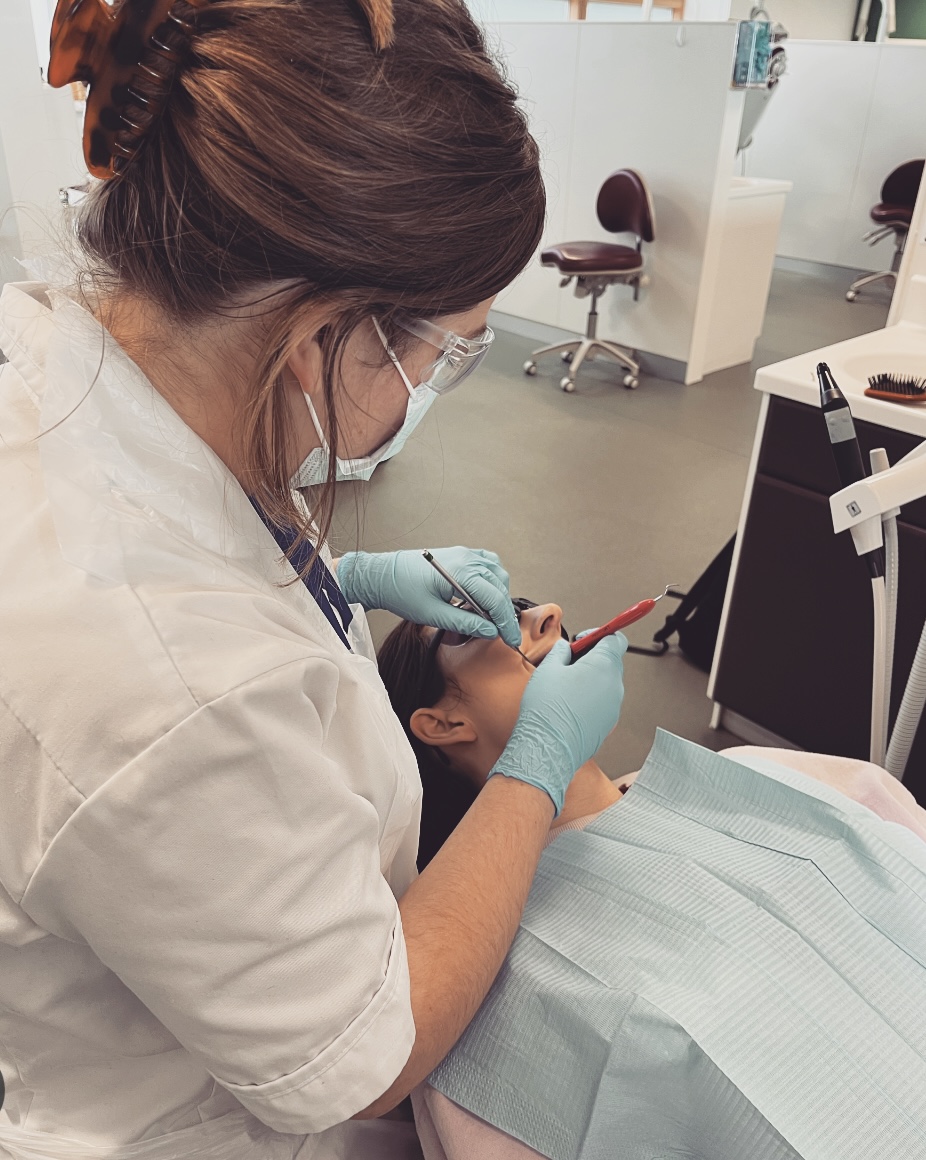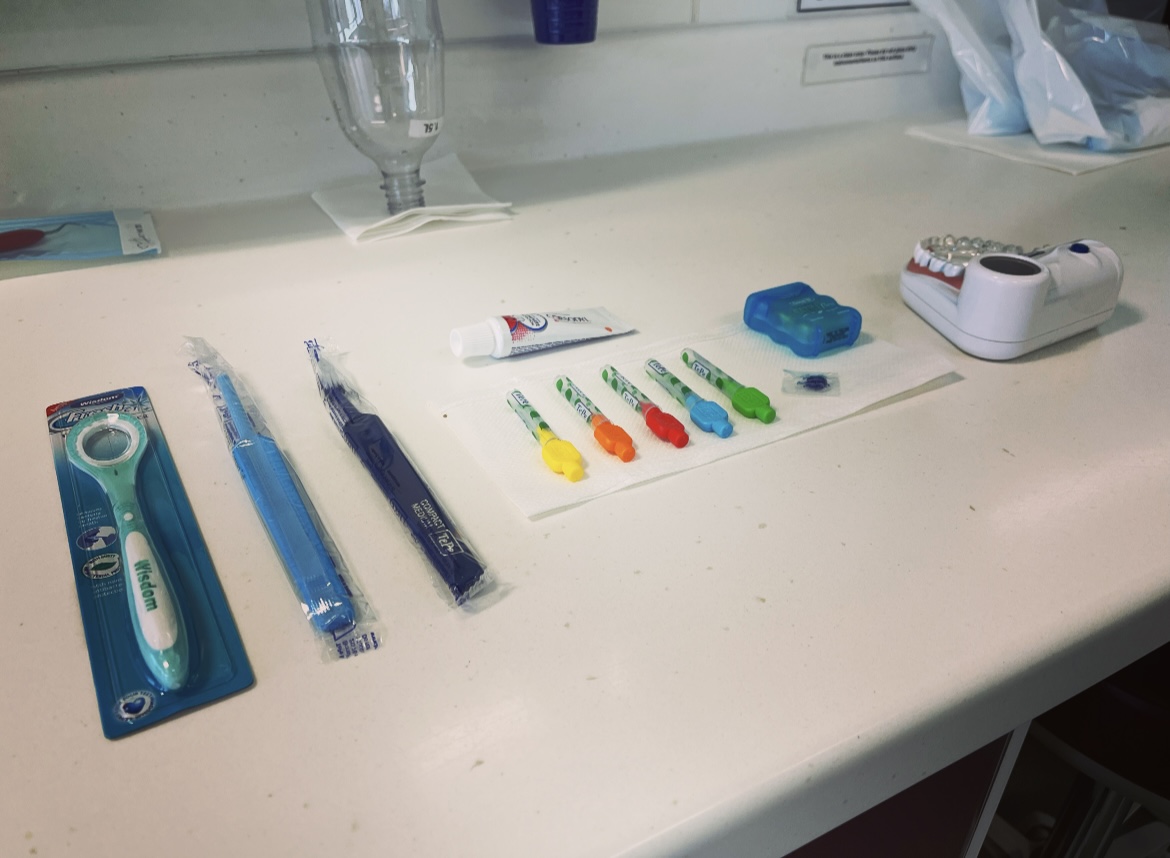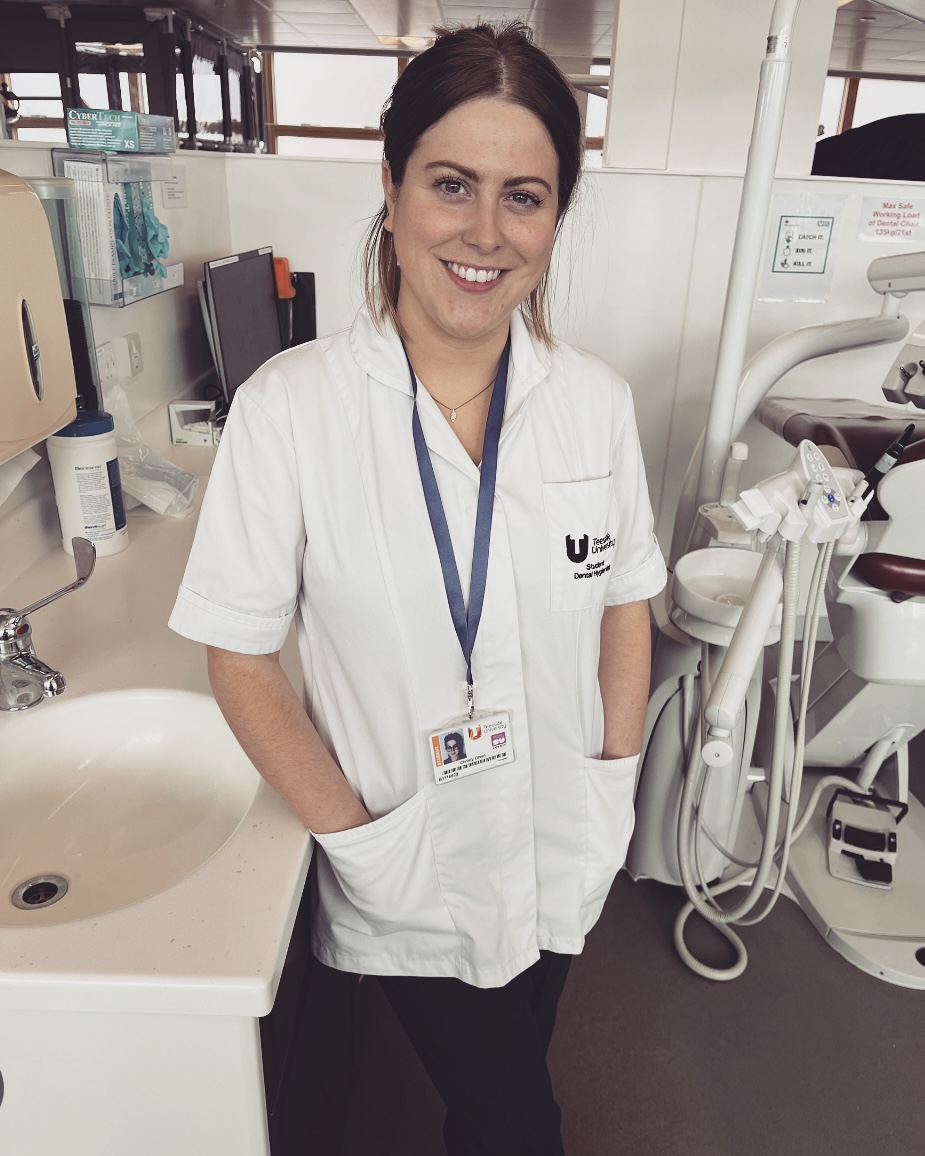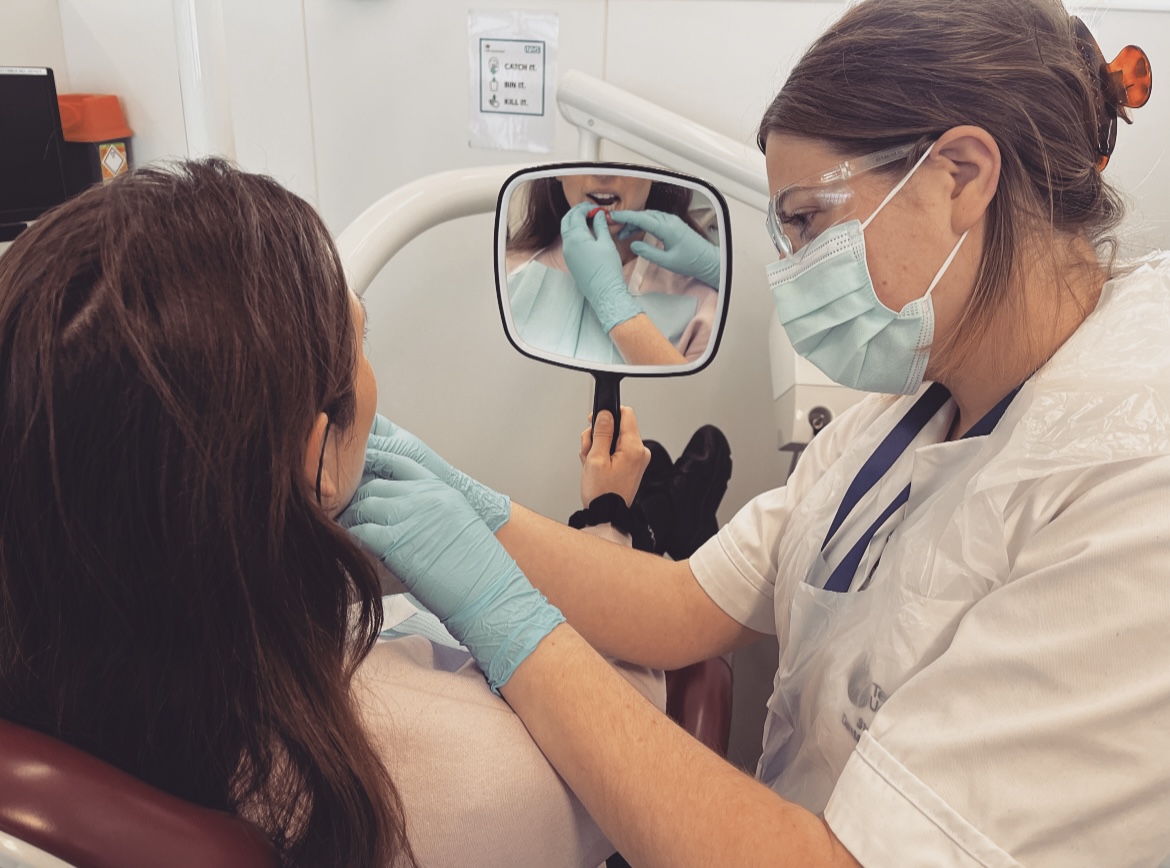Having spent weeks peering for second year students on the student dental clinic, dental hygiene student and committee helper for Teesside University’s Dental Society, Christy Olsen, found herself pining to get started on her own clinical journey on the first day of her second year at uni.

Guest blog: Christy Olsen, Dental Hygiene student
Christy is currently a second year BSc (Hons) Dental Hygiene student at Teesside University. As a Dental Committee Helper for the University’s Dental Society, Christy is passionate about establishing a friendly, fun and supportive network for all dental students.
Naturally, it can feel overwhelming when the time finally comes to treat your first patient as a student in training, and Christy knows that feeling all too well. Read on as she reflects on her experience interacting with a patient for the first time, and her top tips for a successful outcome…
Introductions
Looking back, I found the initial patient introduction to be one of the most challenging aspects of the appointment. This is when you first begin to establish that crucial patient clinician rapport. Remembering patients are human, just like ourselves, really helped me to relax into this aspect of patient management.
It was at this point, with my legs trembling, I tentatively straddled my seat and took my first step to becoming a qualified dental hygienist.
On first appearance…
I vividly remember looking in my first “human” mouth; having every anatomical feature vying for my attention – I had no idea where to look at first! Suddenly fears, doubts and worries started to rear their ugly head and my brain was convinced I simply wasn’t up to the task.

At this point, I stopped myself from going any further and instead took a deep breath to calm my racing mind. This helped enormously and I found myself more focused and determined mentally to make a success of my first patient appointment.
I then began to perform what would be the first of many intra and extra-oral examinations…
Establishing structure
I started by structuring my observations, ensuring no area was over-looked. You’ll be told many times that a methodical order is essential to ensuring no (tonsil) stone goes unturned!
Support
It was during this time that I found the support I received from my peer to be invaluable. After some initial nerves about performing these tasks for the first time in front of a fellow student, I swiftly discovered this actually works in your favour. We’re all in the same boat after all, and good teamwork goes a long way.
I also found my clinical supervisor to be incredibly supportive throughout. I was shown patience and provided with guidance from the start. Still, timed tasks were set, but appropriate to my current skill level. I was, however, questioned throughout, which did apply some extra pressure. On reflection, I’m genuinely glad that my clinical supervisors pushed me quite early on in my training. You may feel thrown in the deep end, but it gears you up for what to expect as you progress through your studies.

On completion, I felt a heady mix of elation and anxiety – my first patient hangover! I was proud of my achievement having successfully finished my first ever appointment, but I was also daunted by the prospect of receiving my first clinical feedback and dizzied by the enormity of what was to come.
It is during these scenarios that the importance of continuous self reflection becomes apparent. Looking back now, I can laugh at my first day jitters and quaking limbs. It’s encouraging to see the progress I’ve already made, which can often be overlooked when you’re having a bad day.
Don’t be so hard on yourself
When observing second and third year students, I often found myself astounded by their level of competence and the ease of which they performed each task. It’s easy to forget that they too started exactly where you are today, and therefore, this is something entirely achievable to yourself if you’re willing to put the effort in.

Top tips
- It’s always daunting doing anything new for the first time. Just remember it’s the taking of that initial first step that will get you to where you want to be!
- Never be afraid to ask for assistance or advice from your clinical supervisors when needed – remember, they’ve been in your position before and are there to support you through your journey.
- Treat your patients in the same way you’d treat a loved one. With this attitude, you won’t go too far wrong!
- Talk to your friends about the good days and the bad – you’ll be surprised at how much you can learn from just sharing experiences.
- Invest in good self care. Clinic can be stressful, so it’s always wise to have a fail safe method of relaxation to help you wind down.
- Skip the script! When talking to patients, ask them about themselves and establish some common ground. This allows conversations to feel genuinely interesting and bypasses that awkward “hasn’t the weather been terrible today!” ‘taxi talk’.
- Most importantly, don’t forget you’re still learning. Don’t be afraid of getting things wrong – you’ll always take away more from these scenarios.
Teesside University Dental Society is a society for all students in any year group, on any dental course. It aims to create a fun, social, and educational space to connect, thrive, and learn. There are social events running regularly to connect with others from all dental courses and have fun away from the clinic, as well as educational away days and study sessions within your year group. Follow @tudentsoc on Instagram and get involved!

